#Julius Rosenberg
Text
I’m fucking sobbing at 10pm why did no one tell me about Ethel and Julius Rosenberg.
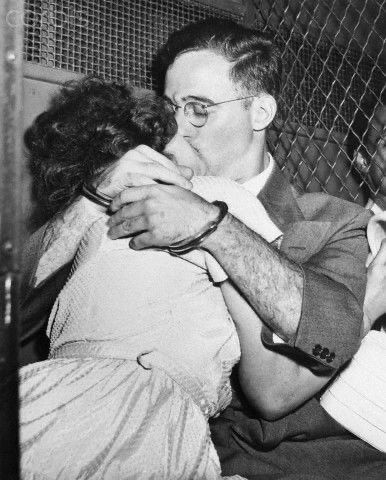
falls to my knees.
#Ethel Rosenberg#Rosenberg trials#julius rosenberg#Fun fact. Oppenheimer was a part of this case!#oppenheimer#i suppose.#MY FUCKING HEART#AHHHHHHHHHH
6 notes
·
View notes
Photo
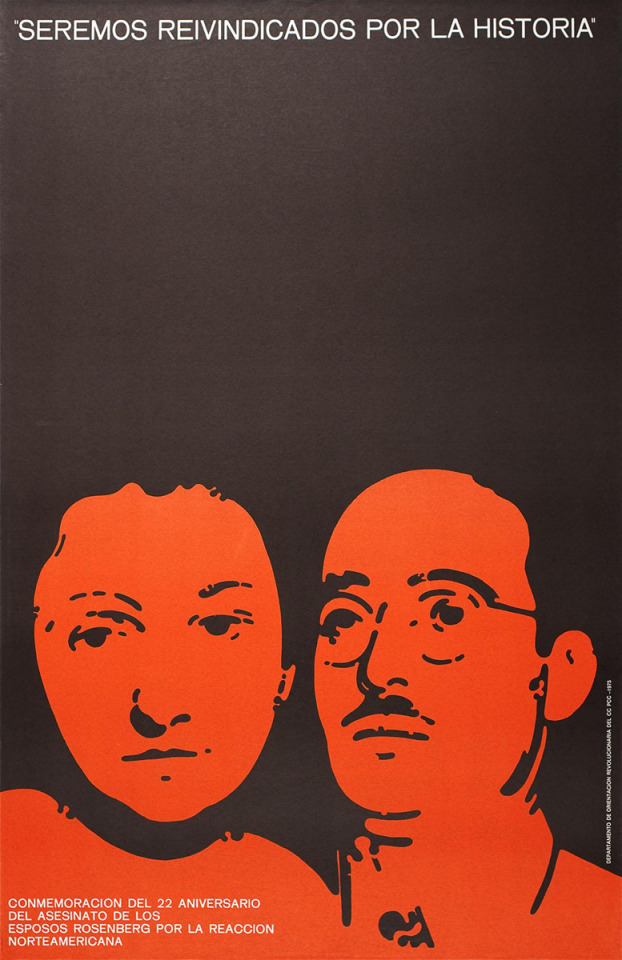
Félix Beltrán, "Seremos reivindicados por la historia", Departamento de Orientación Revolucionaria del CC del PCC, 1975 [Oakland Museum of California, Oakland, CA]
#graphic design#poster#ethel rosenberg#julius rosenberg#félix beltrán#departamento de orientación revolucionaria del cc del pcc#partido comunista cubano#oakland museum of california#1970s
25 notes
·
View notes
Photo
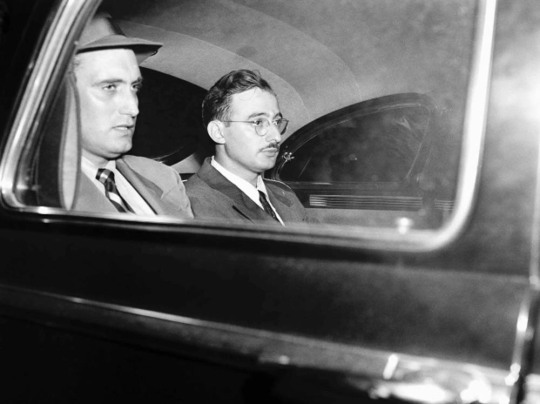
July 17, 1950: Julius Rosenberg, right, engineer and New York manufacturer, in a car with an FBI agent, on their way to the federal house of detention in New York. He had been arrested earlier in day by the FBI and accused of recruiting for a Russian-financed atomic bomb spy ring. After his arraignment on charges of conspiring to commit espionage, he was held on $100,000 bail.
Photo: Tom Fitzsimmons for the AP via the Denver Post
#New York#NYC#vintage New York#1950s#Tom Fitzsimmons#Red Scare#Julius Rosenberg#spies#espionage#Cold War
27 notes
·
View notes
Text
Acusados de espionaje,fueron los primeros civiles de Estados Unidos en ser ejecutados:19 de junio de 1953 el último día del matrimonio Rosenberg
Ethel y Julius Rosenberg eran estadounidenses y eran comunistas. El 19 de junio de 1953, hace setenta años, fueron electrocutados en la prisión Sing Sing luego de ser condenados por traición a la patria: habían ayudado a la Unión Soviética con secretos atómicos. El familiar que los entregó y por qué la mujer fue imputada falsamente
PorMatías Bauso
Los jueces del futuro mirarán este caso con una…
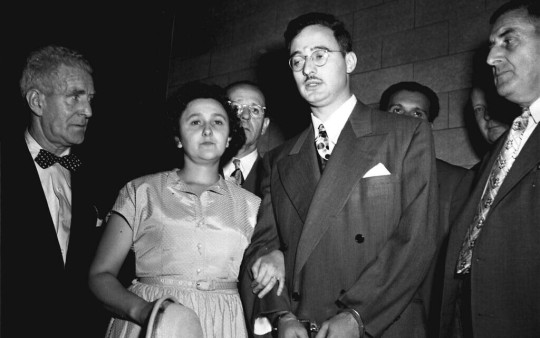
View On WordPress
#19 de junio de 1953#Autor Matías Bauso#Ejecución#Espias#Ethel Rosenberg#Julius Rosenberg#Silla eléctrica
0 notes
Text
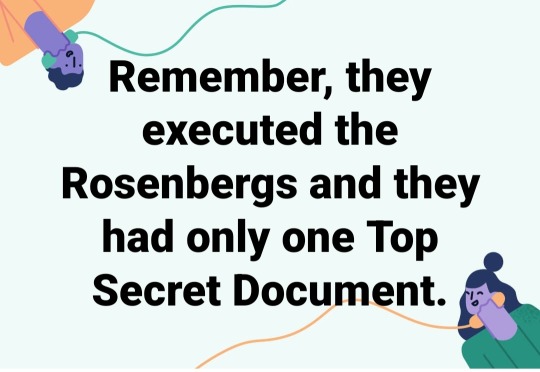
19 notes
·
View notes
Note
Were the Rosenbergs guilty?
According to the Venona decrypts (the content of which is unfortunately unexamined by academia for reasons that I speculate from the benign to the odious), Julius and Ethel Rosenberg were guilty.
Thanks for the question, Anon.
SomethingLikeALawyer, Hand of the King
6 notes
·
View notes
Text
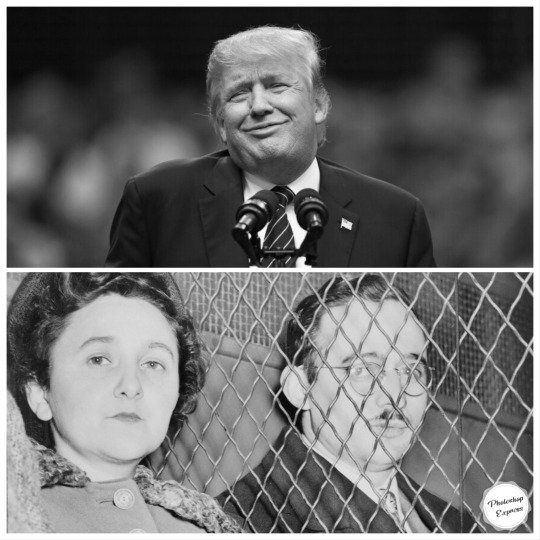
The Nuclear Option
8 notes
·
View notes
Text
#african/black experience#afrikan#war on afrikans#terrorism#protest#freedom#racial profiling#violence#Billie Holiday#Strange Fruit#Abel Meerpol#Lewis Allen#Ethel & Julius Rosenberg#Communist Party#the Teacher’s Union of New York#TAC#revolutionary#culture#February 1939#Harlem
0 notes
Text
1953-Julius and Ethel Rosenberg are executed

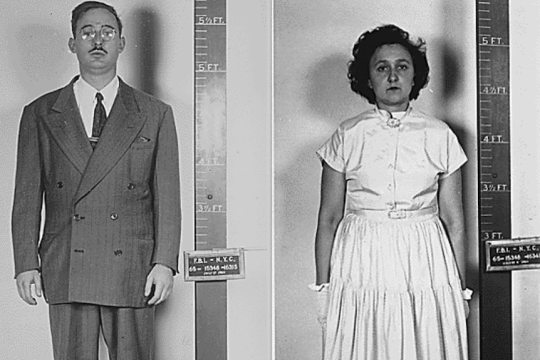
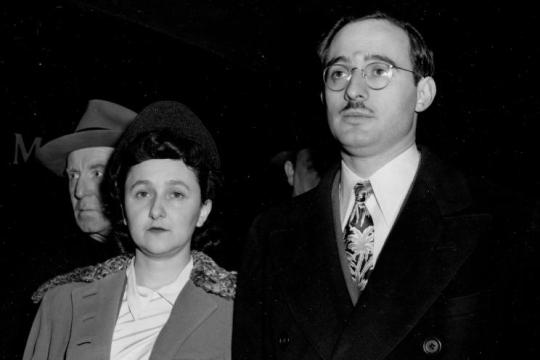
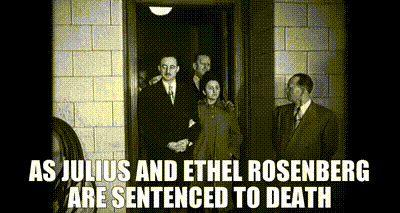
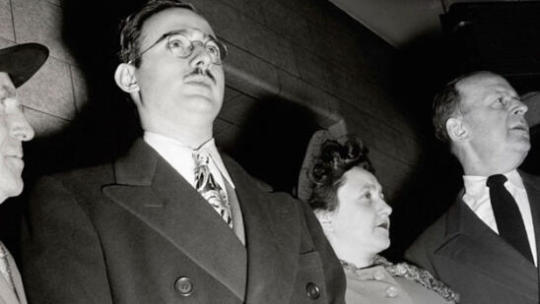
Julius Rosenberg (May 12, 1918 – June 19, 1953) and Ethel Rosenberg (née Greenglass; September 28, 1915 – June 19, 1953) were an American married couple who were convicted of spying for the Soviet Union, including providing top-secret information about American radar, sonar, jet propulsion engines, and nuclear weapon designs. Convicted of espionage in 1951, they were executed by the federal government of the United States in 1953 at Sing Sing Correctional Facility in Ossining, New York, becoming the first American civilians to be executed for such charges and the first to be executed during peacetime.
1 note
·
View note
Text
In light of Fall Out Boy’s GARBAGE cover of the song. Let’s learn about the original. Notice how they’re actually in chronological order instead of just random references 😒😒😒😒
1949
Harry Truman was inaugurated as U.S. president after being elected in 1948 to his own term; previously he was sworn in following the death of Franklin D. Roosevelt. He authorized the use of atomic bombs on Hiroshima and Nagasaki in Japan during World War II, on August 6 and August 9, 1945, respectively.
Doris Day enters the public spotlight with the films My Dream Is Yours and It’s a Great Feeling as well as popular songs like “It’s Magic”; divorces her second husband.
Red China: The Communist Party of China wins the Chinese Civil War, establishing the People’s Republic of China.
Johnnie Ray signs his first recording contract with Okeh Records, although he would not become popular for another two years.
South Pacific, the prize-winning musical, opens on Broadway on April 7.
Walter Winchell is an aggressive radio and newspaper journalist credited with inventing the gossip column.
Joe DiMaggio and the New York Yankees go to the World Series five times in the 1940s, winning four of them.
1950
Joe McCarthy, the US Senator, gains national attention and begins his anti-communist crusade with his Lincoln Day speech.
Richard Nixon is first elected to the United States Senate.
Studebaker, a popular car company, begins its financial downfall.
Television is becoming widespread throughout Europe and North America.
North Korea and South Korea declare war after Northern forces stream south on June 25.
Marilyn Monroe soars in popularity with five new movies, including The Asphalt Jungle and All About Eve, and attempts suicide after the death of friend Johnny Hyde who asked to marry her several times, but she refused respectfully. Monroe would later (1954) be married for a brief time to Joe DiMaggio (mentioned in the previous verse).
1951
The Rosenbergs, Ethel and Julius, were convicted on March 29 for espionage.
H-Bomb is in the middle of its development as a nuclear weapon, announced in early 1950 and first tested in late 1952.
Sugar Ray Robinson, a champion welterweight boxer.
Panmunjom, the border village in Korea, is the location of truce talks between the parties of the Korean War.
Marlon Brando is nominated for the Academy Award for Best Actor for his role in A Streetcar Named Desire.
The King and I, musical, opens on Broadway on March 29.
The Catcher in the Rye, a controversial novel by J. D. Salinger, is published.
1952
Dwight D. Eisenhower is first elected as U.S. president, winning by a landslide margin of 442 to 89 electoral votes.
The vaccine for polio is privately tested by Jonas Salk.
England’s got a new queen: Queen Elizabeth II succeeds to the throne upon the death of her father, George VI, and is crowned the next year.
Rocky Marciano defeats Jersey Joe Walcott, becoming the world Heavyweight champion.
Liberace has a popular 1950s television show for his musical entertainment.
Santayana goodbye: George Santayana, philosopher, essayist, poet, and novelist, dies on September 26.
1953
Joseph Stalin dies on March 5, yielding his position as leader of the Soviet Union.
Georgy Maksimilianovich Malenkov succeeds Stalin for six months following his death. Malenkov had presided over Stalin’s purges of party “enemies”, but would be spared a similar fate by Nikita Khrushchev mentioned later in verse.
Gamal Abdel Nasser acts as the true power behind the new Egyptian nation as Muhammad Naguib’s minister of the interior.
Sergei Prokofiev, the composer, dies on March 5, the same day as Stalin.
Winthrop Rockefeller and his wife Barbara are involved in a highly publicized divorce, culminating in 1954 with a record-breaking $5.5 million settlement.
Roy Campanella, an African-American baseball catcher for the Brooklyn Dodgers, receives the National League’s Most Valuable Player award for the second time.
Communist bloc is a group of communist nations dominated by the Soviet Union at this time. Probably a reference to the Uprising of 1953 in East Germany.
1954
Roy Cohn resigns as Joseph McCarthy’s chief counsel and enters private practice with the fall of McCarthy. He also worked to prosecute the Rosenbergs, mentioned earlier.
Juan Perón spends his last full year as President of Argentina before a September 1955 coup.
Arturo Toscanini is at the height of his fame as a conductor, performing regularly with the NBC Symphony Orchestra on national radio.
Dacron is an early artificial fiber made from the same plastic as polyester.
Dien Bien Phu falls. A village in North Vietnam falls to Viet Minh forces under Vo Nguyen Giap, leading to the creation of North Vietnam and South Vietnam as separate states.
“Rock Around the Clock” is a hit single released by Bill Haley & His Comets in May, spurring worldwide interest in rock and roll music.
1955
Albert Einstein dies on April 18 at the age of 76.
James Dean achieves success with East of Eden and Rebel Without a Cause, gets nominated for an Academy Award for Best Actor, and dies in a car accident on September 30 at the age of 24.
Brooklyn’s got a winning team: The Brooklyn Dodgers win the World Series for the only time before their move to Los Angeles.
Davy Crockett is a Disney television miniseries about the legendary frontiersman of the same name. The show was a huge hit with young boys and inspired a short-lived “coonskin cap” craze.
Peter Pan is broadcast on TV live and in color from the 1954 version of the stage musical starring Mary Martin on March 7. Disney released an animated version the previous year.
Elvis Presley signs with RCA Records on November 21, beginning his pop career.
Disneyland opens on July 17, 1955 as Walt Disney’s first theme park.
1956
Brigitte Bardot appears in her first mainstream film And God Created Woman and establishes an international reputation as a French “sex kitten”.
Budapest is the capital city of Hungary and site of the 1956 Hungarian Revolution.
Alabama is the site of the Montgomery Bus Boycott which ultimately led to the removal of the last race laws in the USA. Rosa Parks and Martin Luther King, Jr figure prominently.
Nikita Khrushchev makes his famous Secret Speech denouncing Stalin’s “cult of personality” on February 25.
Princess Grace Kelly releases her last film, High Society, and marries Prince Rainier III of Monaco.
Peyton Place, the best-selling novel by Grace Metalious, is published. Though mild compared to today’s prime time, it shocked the reserved values of the 1950s.
Trouble in the Suez: The Suez Crisis boils as Egypt nationalizes the Suez Canal on October 29.
1957
Little Rock, Arkansas is the site of an anti-integration standoff, as Governor Orval Faubus stops the Little Rock Nine from attending Little Rock Central High School and President Dwight D. Eisenhower deploys the 101st Airborne Division to counteract him.
Boris Pasternak, the Russian author, publishes his famous novel Doctor Zhivago.
Mickey Mantle is in the middle of his career as a famous New York Yankees outfielder and American League All-Star for the sixth year in a row.
Jack Kerouac publishes his first novel in seven years, On the Road.
Sputnik becomes the first artificial satellite, launched by the Soviet Union on October 4, marking the start of the space race.
Chou En-Lai, Premier of the People’s Republic of China, survives an assassination attempt on the charter airliner Kashmir Princess.
Bridge on the River Kwai is released as a film adaptation of the 1954 novel and receives seven Academy Awards, including Best Picture.
1958
Lebanon is engulfed in a political and religious crisis that eventually involves U.S. intervention.
Charles de Gaulle is elected first president of the French Fifth Republic following the Algerian Crisis.
California baseball begins as the Brooklyn Dodgers and New York Giants move to California and become the Los Angeles Dodgers and San Francisco Giants. They are the first major league teams west of Kansas City.
Charles Starkweather Homicide captures the attention of Americans, in which he kills eleven people between January 25 and 29 before being caught in a massive manhunt in Douglas, Wyoming.
Children of Thalidomide: Mothers taking the drug Thalidomide had children born with congenital birth defects caused by the sleeping aid and antiemetic, which was also used at times to treat morning sickness.
1959
Buddy Holly dies in a plane crash on February 3 with Ritchie Valens and The Big Bopper, in a day that had a devastating impact on the country and youth culture. Joel prefaces the lyric with a Holly signature vocal hiccup: “Uh-huh, uh-huh.”
Ben-Hur, a film based around the New Testament starring Charlton Heston, wins eleven Academy Awards, including Best Picture.
Space Monkey: Able and Miss Baker return to Earth from space aboard the flight Jupiter AM-18.
The Mafia are the center of attention for the FBI and public attention builds to this organized crime society with a historically Sicilian-American origin.
Hula hoops reach 100 million in sales as the latest toy fad.
Fidel Castro comes to power after a revolution in Cuba and visits the United States later that year on an unofficial twelve-day tour.
Edsel is a no-go: Production of this car marque ends after only three years due to poor sales.
1960
U-2: An American U-2 spy plane piloted by Francis Gary Powers was shot down over the Soviet Union, causing the U-2 Crisis of 1960.
Syngman Rhee was rescued by the CIA after being forced to resign as leader of South Korea for allegedly fixing an election and embezzling more than US $20 million.
Payola, illegal payments for radio broadcasting of songs, was publicized due to Dick Clark’s testimony before Congress and Alan Freed’s public disgrace.
John F. Kennedy beats Richard Nixon in the November 8 general election.
Chubby Checker popularizes the dance The Twist with his cover of the song of the same name.
Psycho: An Alfred Hitchcock thriller, based on a pulp novel by Robert Bloch and adapted by Joseph Stefano, which becomes a landmark in graphic violence and cinema sensationalism. The screeching violins heard briefly in the background of the song are a trademark of the film’s soundtrack.
Belgians in the Congo: The Republic of the Congo (Leopoldville) was declared independent of Belgium on June 30, with Joseph Kasavubu as President and Patrice Lumumba as Prime Minister.
1961
Ernest Hemingway commits suicide on July 2 after a long battle with depression.
Adolf Eichmann, a “most wanted” Nazi war criminal, is traced to Argentina and captured by Mossad agents. He is covertly taken to Israel where he is put on trial for crimes against humanityin Germany during World War II, convicted, and hanged.
Stranger in a Strange Land, written by Robert A. Heinlein, is a breakthrough best-seller with themes of sexual freedom and liberation.
Bob Dylan is signed to Columbia Records after a New York Times review by critic Robert Shelton.
Berlin is separated into West Berlin and East Berlin, and from the rest of East Germany, when the Berlin Wall is erected on August 13 to prevent citizens escaping to the West.
The Bay of Pigs Invasion fails, an attempt by United States-trained Cuban exiles to invade Cuba and overthrow Fidel Castro.
1962
Lawrence of Arabia: The Academy Award-winning film based on the life of T. E. Lawrence starring Peter O’Toole premieres in America on December 16.
British Beatlemania: The Beatles, a British rock group, gain Ringo Starr as drummer and Brian Epstein as manager, and join the EMI’s Parlophone label. They soon become the world’s most famous rock band, with the word “Beatlemania” adopted by the press for their fans’ unprecedented enthusiasm. It also began the British Invasion in the United States.
Ole’ Miss: James Meredith integrates the University of Mississippi
John Glenn: Flew the first American manned orbital mission termed “Friendship 7” on February 20.
Liston beats Patterson: Sonny Liston and Floyd Patterson fight for the world heavyweight championship on September 25, ending in a first-round knockout. This match marked the first time Patterson had ever been knocked out and one of only eight losses in his 20-year professional career.
1963
Pope Paul VI: Cardinal Giovanni Montini is elected to the papacy and takes the papal name of Paul VI.
Malcolm X makes his infamous statement “The chickens have come home to roost” about the Kennedy assassination, thus causing the Nation of Islam to censor him.
British politician sex: The British Secretary of State for War, John Profumo, has a relationship with a showgirl, and then lies when questioned about it before the House of Commons. When the truth came out, it led to his own resignation and undermined the credibility of the Prime Minister.
JFK blown away: President John F. Kennedy is assassinated on November 22 while riding in an open convertible through Dallas.
1965
Birth control: In the early 1960s, oral contraceptives, popularly known as “the pill”, first go on the market and are extremely popular. Griswold v. Connecticut in 1965 challenged a Connecticut law prohibiting contraceptives. In 1968, Pope Paul VI released a papal encyclical entitled Humanae Vitae which declared artificial birth control a sin.
Ho Chi Minh: A Vietnamese communist, who served as President of Vietnam from 1954–1969. March 2 Operation Rolling Thunder begins bombing of the Ho Chi Minh Trail supply line from North Vietnam to the Vietcong rebels in the south. On March 8, the first U.S. combat troops, 3,500 marines, land in South Vietnam.
1968
Richard Nixon back again: Former Vice President Nixon is elected President in 1968.
1969
Moonshot: Apollo 11, the first manned lunar landing, successfully lands on the moon.
Woodstock: Famous rock and roll festival of 1969 that came to be the epitome of the counterculture movement.
1974–75
Watergate: Political scandal that began when the Democratic National Committee’s headquarters at the Watergate office complex in Washington, DC was broken into. After the break-in, word began to spread that President Richard Nixon (a Republican) may have known about the break-in, and tried to cover it up. The scandal would ultimately result in the resignation of President Nixon, and to date, this remains the only time that anyone has ever resigned the United States Presidency.
Punk rock: The Ramones form, with the Sex Pistols following in 1975, bringing in the punk era.
1976–77
(An item from 1977 comes before three items from 1976 to make the song scan.)
Menachem Begin becomes Prime Minister of Israel in 1977 and negotiates the Camp David Accords with Egypt’s president in 1978.
Ronald Reagan was elected President of the United States in 1980, but he first attempted to run for the position in 1976.
Palestine: a United Nations resolution that calls for an independent Palestinian state and to end the Israeli occupation.
Terror on the airline: Numerous aircraft hijackings take place, specifically, the Palestinian hijack of Air France Flight 139 and the subsequent Operation Entebbe in Uganda.
1979
Ayatollah’s in Iran: During the Iranian Revolution of 1979, the West-backed and secular Shah is overthrown as the Ayatollah Ruhollah Khomeini gains power after years in exile and forces Islamic law.
Russians in Afghanistan: Following their move into Afghanistan, Soviet forces fight a ten-year war, from 1979 to 1989.
1983
Wheel of Fortune: A hit television game show which has been TV’s highest-rated syndicated program since 1983.
Sally Ride: In 1983 she becomes the first American woman in space. Ride’s quip from space “Better than an E-ticket”, harkens back to the opening of Disneyland mentioned earlier, with the E-ticket purchase needed for the best rides.
Heavy metal suicide: In the 1980s Ozzy Osbourne and the bands Judas Priest and Metallica were brought to court by parents who accused the musicians of hiding subliminal pro-suicide messages in their music.
Foreign debts: Persistent U.S. trade deficits
Homeless vets: Veterans of the Vietnam War, including many disabled ex-military, are reported to be left homeless and impoverished.
AIDS: A collection of symptoms and infections in humans resulting from the specific damage to the immune system caused by infection with the human immunodeficiency virus (HIV). It is first detected and recognized in the 1980s, and was on its way to becoming a pandemic.
Crack cocaine use surged in the mid-to-late 1980s.
1984
Bernie Goetz: On December 22, Goetz shot four young men who he said were threatening him on a New York City subway. Goetz was charged with attempted murder but was acquitted of the charges, though convicted of carrying an unlicensed gun.
1988
Hypodermics on the shore: Medical waste was found washed up on beaches in New Jersey after being illegally dumped at sea. Before this event, waste dumped in the oceans was an “out of sight, out of mind” affair. This has been cited as one of the crucial turning points in popular opinion on environmentalism.
1989
China’s under martial law: On May 20, China declares martial law, enabling them to use force of arms against protesting students to end the Tiananmen Square protests.
Rock-and-roller cola wars: Soft drink giants Coke and Pepsi each run marketing campaigns using rock & roll and popular music stars to reach the teenage and young adult demographic.
Short summaries of all 119 references mentioned in the song, you’re welcome.
#look fall out boy is one of my fave bands but this is inexcusable#fall out boy#Billy Joel#music#Spotify
292 notes
·
View notes
Text
An "oh no what am I going to watch after Fellow Travelers is done?" List
When I first saw the trailer for Fellow Travelers I was disappointed because it looked predictable. Turns out it wasn't nearly as predictable as I thought, and is actually quite good. But then I got to thinking...why not share a list of series and movies that folks might be interested in watching once Fellow Travelers is done airing.
--
If you want to see more about McCarthyism, Roy Cohn and the Lavender Scare:
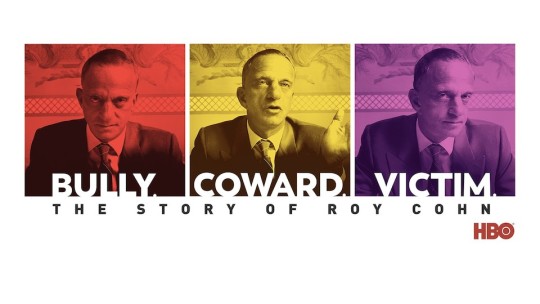
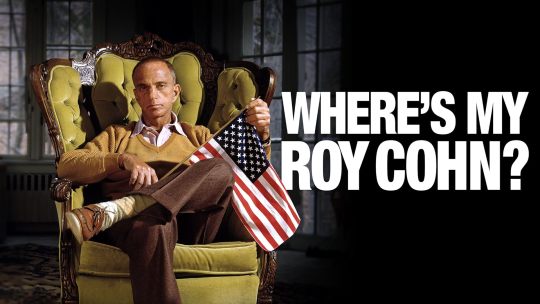
Bully. Coward. Victim. (2019) and Where's My Roy Cohn? (2019) - Both of these documentaries focus on the life of Roy Cohn, from his time at the McCarthy hearings, to his time as the Studio 54 lawyer, to his work during the Reagan era and his eventual death from AIDS. Where's My Roy Cohn? also focuses in on Roy Cohn's working relationship with Donald Trump. "Bully. Coward. Victim. was produced by the granddaughter of Julius and Ethel Rosenberg and as such, it also focuses more on the lasting impact of Cohn's role in their executions. There's a lot of overlap between the two documentaries, but I think they're both worth watching if you can.
--
If you want to see more stories of gay men in the 1950s:
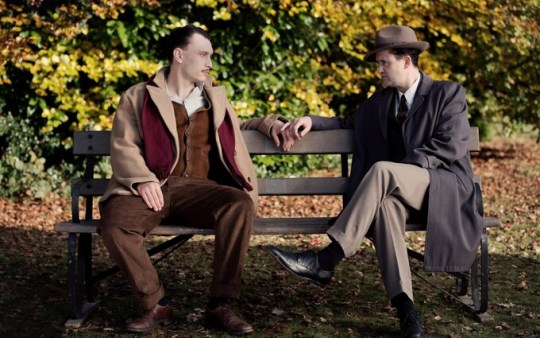
Against the Law (2017) - This is a biopic about Peter Wildeblood, a man who was put on trial for homosexuality and who, remarkably, acknowledged that he was gay during the trial. This trial and Wildeblood's later actions, are considered pivotal in the movement toward decriminalizing homosexuality in the UK. The movie takes place mostly in the 1950s and, again, deals with queer men trying to find love in a time in which laws, social norms, etc. made it exceedingly difficult to do so. The drama is interspersed with interviews in 2017 with real queer men who were alive at the time of the trial.
--
If you want to see more stories of ruthless politicians trying to hide that they're gay:
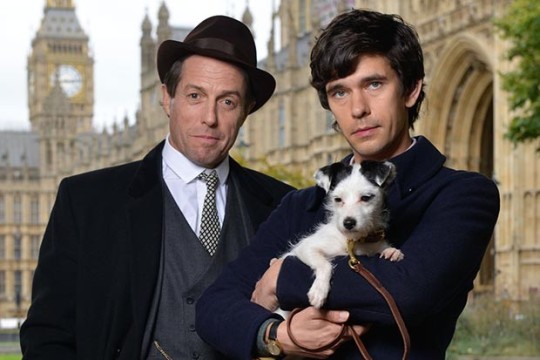
A Very English Scandal (2018) - As the title suggests, this miniseries takes place in the UK. It's based on a true story...even the more outlandish moments. Jeremy Thorpe (Hugh Grant) is a career politician who's been hiding that he's gay for decades. He's developed a ruthlessness and callousness to his own situation and he, predictably, treats everyone around him as disposable. Then along comes Norman Scott (Ben Whishaw), a young man who Thorpe is instantly attracted to. But Scott struggles with self-acceptance and mental health issues, and Thorpe has no compassion nor patience for any of that. The result is a dark comedy about this doomed relationship alongside the change to the law in the UK to decriminalize homosexuality.
--
If you want to see more stories of queer folks in the 1980s:

It's A Sin (2021) - This is a miniseries that follows a group of queer folks during the 1980s in London. It's all about their search for love and finding themselves and whatnot, even as they are forced to deal with HIV and AIDS. It's a good show that is worth a watch, especially if you haven't seen much else about being queer in the '80s.
--

Angels in America (2003) - Of course Angels in America was going to end up on this list. It is one of the definitive pieces of fiction on living in New York during the AIDS crisis. The play was originally performed in 1991...just four years after AZT was approved for use in the US to treat HIV and AIDS. It's big, and complex, and as much about the state of the U.S. at the time as it is about these individual characters and their lives. Also, Roy Cohn shows up, working as a political operative for Reagan. It really is, as it's subtitle says, "A Gay Fantasia on National Themes."
#fellow travelers#bully coward victim#where's my roy cohn#against the law#a very english scandal#it's a sin#angels in america
85 notes
·
View notes
Text
Nuremberg Defendants: Part 1, Alfred Rosenberg - Nazi Philosopher




I've created a new goal for 2024, which is to make posts about the defendants of the Nuremberg Trials. For the sake of the fact that there are already many Tumblr blogs that talk about specific figures from the trials, I won't be making these sort of posts for Göring or Speer. I made one for Hess a couple of months ago in response to an ask I received, which I will link here. These posts will be related to the lesser-talked-about defendants that stood trial and the first of these (because I'll be posting this on his birthday) will be Alfred Rosenberg.
-Alfred Ernst Rosenberg was born on the 12th of January 1893 in Reval (now Talinn), Estonia. His parents died when he was still fairly young and was raised mostly by his two parental aunts.
-What we know about Rosenberg's early life is very limited to what he wrote in his memoirs at Nuremberg. However, what we do know is that he had an elder brother called 'Janny', whose date of death is unknown (he had been arrested by the Soviets). From around his mid-teens he became interested in philosophy. We also know that some of his hobbies included sailing in the summer and ice skating in the winter, and that his nickname given to him by family (or at least referred to by his niece in letters) was 'Freddy'.
-Rosenberg had studied to be an architect and obtained his PhD in 1917. At his stays at home in Estonia he worked as a drawing teacher.
-Rosenberg spent the years of the First World War as a student. He had volunteered to serve in the army but was rejected on the grounds of his nationality. After the revolution in Russia, Rosenberg fled to Munich where he was taken in by Dietrich Eckart.
-Rosenberg had planned to continue with his career in architecture in Munich, but had eventually started working for the far-right newspaper 'Völkischer Beobachter' (English: People's Observer). This paper was sponsored by the Thule Society, a group that which Rosenberg was a member of (and adding onto this, Rosenberg was one of the very first to join the Nazi Party). In 1923 Rosenberg became editor-in-chief of the newspaper.
-Rosenberg, like all of the early members of the party, took part in the Beer Hall Putsch in 1923. Rosenberg had escaped from police and took refuge in the home of an old lady. After the Putsch, Hitler had named Rosenberg as leader of the Nazi movement. This was a tactical move made by Hitler, as Rosenberg was regarded as lazy and was not as dominant as other members of the movement (such as Julius Streicher - who I will be making a post on in the future). Hitler knew that there was no chance of Rosenberg completely taking control of the whole movement, which therefore secured Hitler's leadership, which was restored to him after being released from prison.
-Also in 1923, Rosenberg obtained a divorce from his first wife, Hilda Leesman. Hr married her in 1915, however she was often sick and never followed Rosenberg to Germany. Rosenberg presented himself as the guilty party when obtaining a divorce. His first wife died in 1928 from tuberculosis. Rosenberg married his second wife, Hedwig Kramer, in 1925 and the marriage lasted until Rosenberg's death. Together they had two children: a son that died in infancy, and a daughter, Irene, born in 1930.
-Rosenberg was also often the victim of numerous rumours. For example:
A common rumour was that Rosenberg was in fact Jewish. His last name obviously didn't help with these rumours. He also didn't put in much effort to clarifying his ethnic background (but this was to keep the rest of his family - occupied by the Soviets - safe).
A rumour spread mostly by Hermann Göring was that Rosenberg had been working as a French spy during World War 1.
Another rumour was that he had an “unsavoury romantic life” which included him attending orgies of both men and women. This was a rumour spread by Ernst Hanfstaengl. Hanfstaengl gives no source for this, however he is also incredibly biased against Rosenberg so we can also assume that this was made up.
-Rosenberg is most well-known for his book “The Myth of the 20th Century”. This book shows us his ideas of National Socialist philosophy, a form of National Socialism which he later claimed was never truly realised. The Myth sold around 1 million copies by the end of the Second World War. The book at the time was not translated into any other languages, as per Rosenberg's request, although a refined version was written by Rosenberg for use in schools (however Rosenberg personally disagreed with this too, believing it was for the youth themselves to develop their own ideas). It's also interesting that Hitler personally disliked The Myth. He claimed that it was something that ordinary people would not understand and made digs at Rosenberg's Baltic background.
-An important part of Rosenberg's ideology was his fierce anti-Christianity, especially in regards to the Catholic Church. Rosenberg himself was raised Protestant but believed there to be no need for Christianity, and also believed that Christianity was gradually dying out.
-Upon the Nazi's coming to power, Rosenberg's primary role was related to being the party's chief ideologist. This role undoubtedly had its limits. A specific example was the amount of real influence he had over schools. Rosenberg had no direct influence over schools and other party officials made sure that he could not intervene in schools. His desired plans for 'Hohe Schule' eventually had to be abandoned.
-In the Second World War, Rosenberg was given a big role, being made Reichsminister für die besetzten Ostgebiete (English: Reich Minister for the Eastern Occupied Territories) after Germany had made successful advances in the East. However, once again, Rosenberg's role was limited. He was constantly blocked by other party members (including Reichsmarschall Hermann Göring, Minister for Occupied Ukraine Erich Koch, Hitler's private secretary Martin Bormann, as well as constant battle over authority with foreign minister Joachim von Ribbentrop).
-Rosenberg's position on the governance of the Eastern Territories was different to that of Erich Koch. Where Koch saw dictatorial opportunities in Ukraine, Rosenberg saw an opportunity to break up the USSR and allow for self-governance of the eventual newly-created states.
-Rosenberg was personally horrified by the treatment of Slavic peoples during the war and there are moments in which he intervened (as best as he could). There is no evidence that he intervened on behalf of Jews, but Dr Otto Bräutigam recorded an occasion where Rosenberg condemned 'wild excesses' against Jews in Russia (however this does not mean that his opinions on Jews and anti-semitism had suddenly changed, they did not). Rosenberg had a principle that some ethnic groups were 'more deserving' than others, and this basis had saved lives of prisoners of war by getting separate camps set up for them and sending out inspectors to tour them. Although Rosenberg's motives were often not clear, his interventions were usually on the side of sanity and in some cases humanity.
-After the failures of Stalingrad and when territory in the East began to erode, Rosenberg's role as Minister for the Occupied Eastern Territories became increasingly meaningless. Only in 1944 did Rosenberg pluck up the courage to send a letter of resignation to Hitler, however Hitler did not bother to respond to this letter. It's suggested that if Rosenberg had resigned in 1943 (as advised by the staff that worked under him), it's likely that he would have been spared by the hangman's noose.
-Prior to his capture in May 1945, Rosenberg had considered committing suicide along with the rest of his family to avoid capture by the Russians. He had acquired enough cyanide for himself, his wife and his daughter. However, Rosenberg had a change of heart, apparently throwing the cyanide into the sea at Flensburg (according to his Nuremberg memoirs). After this Rosenberg had sprained his ankle (throughout adulthood he always had problems with his foot) and had to be taken to a military hospital where Rosenberg then gave himself up to the Allies. Albert Speer claims that Rosenberg was drunk when he sprained his ankle, however Speer was not present nor did he provide a source for this information. Rosenberg claims that he was not drunk but had to be carried.
-In the Nuremberg Trials Rosenberg was defended by Dr Alfred Thoma. Rosenberg's examinations by the prosecutors at Nuremberg are fairly awkward. For example, the Russian prosecutor M. Y. Raginsky gave a description of Rosenberg's authorisation of the removal to the Reich in 1944 of 40,000 homeless Russian orphans (this is something I will refer back to again shortly), but the prosecutor fell silent when Rosenberg alleged that a similar number of adults had been deported to the USSR in 1940 from the states of Latvia and Estonia. US prosecutors also had their awkward moments, for example Thomas Dodd who heatedly accused Rosenberg of persecuting religion.
-Coming back to my mention of the removal of Russian orphans to the Reich: although Rosenberg could not deny that he authorised the removal, to Rosenberg's credit he could maintain that he had cared of the wellbeing of the children and had visited the camp near Dessau. Dr. Thoma insisted that Rosenberg took charge of them at the personal request of Field-Marshall von Kluge, who feared that they would otherwise fall into the hands of Fritz Sauckel. There is also confusion of the numbers involved. The Russian prosecutor alleged 40,000 orphans; whereas Dr. Thoma admitted to 20,000. However, expert opinion now suggests that the real figure was somewhere between 2,500 to 3,000 orphans.
-Rosenberg followed trial proceedings very closely whenever it concerned him personally. On several occasions while being examined but the Russians, he tried to intervene to check the the translation, which he claimed to be distorting what he had said. Whenever he wasn't being examined, he tended to lose interest and spent his time making pencil sketches of witnesses.
-Although Dr. Thoma did his best, Rosenberg's defence was handicapped for a number of reasons. One of the main reasons was that documents and witnesses were provided at the indulgence of the prosecution. Rosenberg had tried to call a witness to testify on behalf of his work in German-English relations, however there was o response. Another reason is that Rosenberg himself gave complicated answers when being examined, so much so that even Dr. Thoma had asked him to be more concise.
-Rosenberg was found guilty on all four counts of the indictment of the tribunal and was sentenced to death by hanging. Upon the scaffold when asked if he had any last words Rosenberg said “no”, being the only criminal condemned to the gallows to have no last words. Rosenberg was hung in the early hours of October 16th, 1946.
37 notes
·
View notes
Photo

Memorial for Ethel and Julius Rosenberg, Carnegie Hall, New York, NY, 1974 [inscription: «copy of a Picasso print presented to Michael and Robert, sons of the Rosenbergs by the Artist». Pablo Picasso, À la mémoire de Julius et Ethel Rosenberg, 1953] [Oakland Museum of California (OMCA), Oakland, CA]
#graphic design#art#drawing#poster#ethel rosenberg#julius rosenberg#michael rosenberg#robert rosenberg#pablo picasso#oakland museum of california#1950s#1970s
32 notes
·
View notes
Text
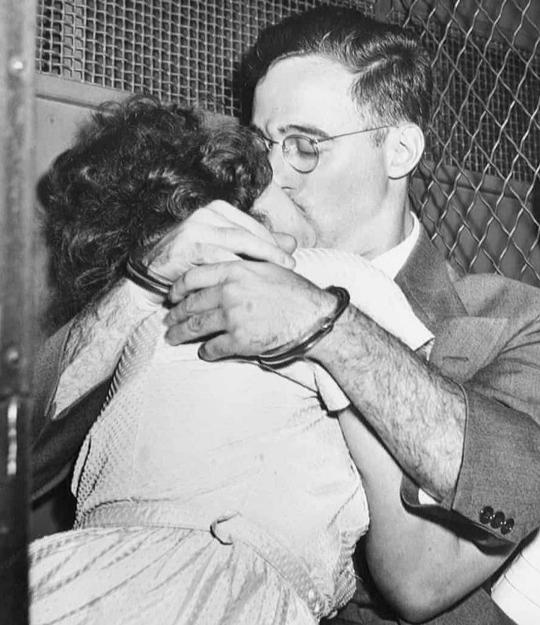
Julius and Ethel Rosenberg share a final kiss before being sent to Sing Sing Correctional Facility.The couple were convicted of spying and providing dozens of top secret nuclear and radar information to the Soviets.They would both be executed on the 19th June 1953.
242 notes
·
View notes
Text
By Stephen Millies
In his funeral eulogy for Ethel and Julius Rosenberg, W.E.B. Du Bois declared, “They died because they would not lie.” The Rosenbergs were executed by the U.S. government on Juneteenth, 1953.
The Rosenbergs were blamed for the Soviet Union being able to develop an atomic bomb. Their frame-up and execution for espionage during the Korean War was the peak of the anti-communist witch hunt in the United States.
#Rosenbergs#execution#imperialism#death penalty#communist#cold war#witch hunt#web dubois#USSR#Soviet Union#frame up#Korean War#political prisoners#struggle la lucha
127 notes
·
View notes
Text
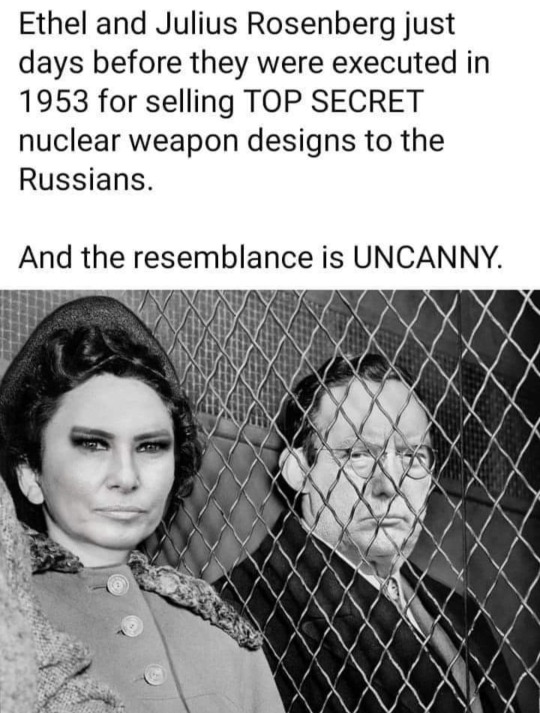
15 notes
·
View notes